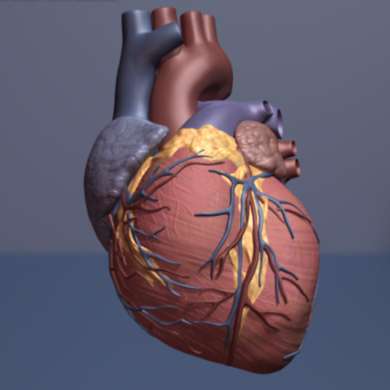
Genetic variants have been linked with a higher risk of having a heart attack, permitting the calculation of “polygenic risk scores” (PRS) that quantify patients’ inherited susceptibility based on the number of variants they have.
A team led by investigators at Massachusetts General Hospital and the Broad Institute of Massachusetts Institute of Technology and Harvard recently found that applying PRS can identify at-risk patients who are not presently identified through standard clinical evaluations.
In a study reported in the Journal of the American College of Cardiology, the team applied PRS to 47,108 individuals who were an average of 60 years old and were receiving care across three U.S. health care systems (in Massachusetts, Pennsylvania and New York). The PRS strongly associated with the presence of coronary artery disease, which is the cause of heart attacks. Specifically, those with scores in the top 20% were 1.9-times more likely to have developed disease compared with the remaining 80% of the population. Importantly, those with high PRS were not more likely than others to have been previously recognized as high risk by their physicians.
“We identified a subset of individuals at double the risk of heart attack on the basis of their genes. Despite this elevated risk, these individuals were neither more likely to be flagged as high risk, nor more likely to receive preventive statin therapy per our conventional clinical practices—a consistent finding across all three health systems studied,” said lead author Krishna Aragam, MD, a cardiologist at Mass General and an instructor in Medicine at Harvard Medical School.
The researchers determined that if coronary artery disease PRS were considered alongside current national guidelines, an additional 4.1% of patients who have not yet experienced a heart attack may be recommended to receive cholesterol-lowering statins. “When coupled with clinical assessments, we estimate that genetic testing may uniquely identify a need for preventive statin therapy in approximately 1 in every 25 of such patients,” said Dr. Aragam.
Source: Read Full Article
